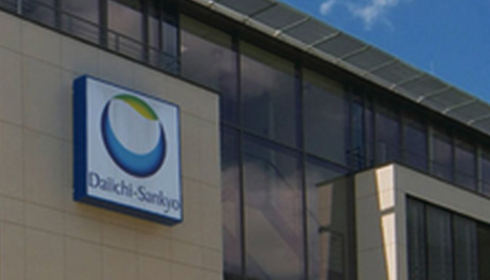
Daiichi Sankyo Expands Oncology Pipeline with $132.5M Acquisition of TA-MUC1 Antibody
Japanaese pharma giant Daiichi Sankyo, has made a bold move in the oncology sector by acquiring the intellectual property rights for the anti-TA-MUC1 antibody from Glycotope GmbH. This acquisition, worth $132.5 million, aligns with Daiichi’s strategy of advancing cancer treatment through antibody-drug conjugates (ADCs).
The company has been making strategic investments in ADCs, a class of targeted cancer therapies that combine monoclonal antibodies with potent cytotoxic agents. The latest addition to its ADC portfolio, DS-3939, is a first-in-class TA-MUC1 directed ADC engineered using Daiichi Sankyo’s proprietary DXd ADC technology. This acquisition not only expands the company's oncology pipeline but also eliminates potential financial obligations linked to the 2018 licensing agreement with Glycotope, ensuring complete control over DS-3939’s development and commercialization.
TA-MUC1 is a tumor-associated transmembrane glycoprotein that is overexpressed in various epithelial cancers, including lung, breast, ovarian, and pancreatic cancers. The aberrant glycosylation of TA-MUC1 makes it a promising target for cancer treatment, yet no approved therapies targeting this protein exist. With DS-3939 currently in phase 1/2 clinical trials, Daiichi Sankyo aims to pioneer a new therapeutic avenue for patients with advanced solid tumors.
it is worthwhile to note that the company has built a robust ADC portfolio, leveraging two distinct in-house ADC technology platforms. The DXd ADC technology, which underpins DS-3939, has already demonstrated success with ENHERTU (HER2-directed ADC) and DATROWAY (TROP-2-directed ADC), both co-developed with AstraZeneca. Other ADC candidates in its pipeline include patritumab deruxtecan (HER3), ifinatamab deruxtecan (B7-H3), and raludotatug deruxtecan (CDH6), developed in collaboration with Merck & Co.
By securing exclusive rights to DS-3939, Daiichi further strengthens its position in the ADC space, potentially setting the stage for breakthrough treatments in cancers with high unmet medical needs.
While the acquisition brings significant opportunities, there are inherent risks. Clinical development of ADCs is complex and expensive, with potential safety concerns due to toxicity. The success of DS-3939 depends on the outcomes of ongoing clinical trials and regulatory approvals. Additionally, the competition in the ADC market is intensifying, with companies like Seagen, AstraZeneca, and Roche also advancing their ADC programs.
For the pharmaceutical industry, Daiichi Sankyo’s aggressive expansion in ADCs signals a shift towards precision oncology. If DS-3939 proves successful, it could pave the way for further investments in TA-MUC1-directed therapies and enhance the company’s standing as a leader in next-generation cancer treatments.
Daiichi Sankyo’s acquisition of Glycotope’s anti-TA-MUC1 antibody represents a strategic move to strengthen its oncology pipeline. By fully integrating DS-3939 into its ADC portfolio, the company aims to drive innovation in targeted cancer therapy. While challenges remain, the acquisition underscores the growing importance of ADCs in modern oncology and highlights Daiichi Sankyo’s determination to shape the future of cancer treatment.